Veteran addiction treatment at NOLA Detox and Recovery Center provides compassionate, evidence-based care for those who served our country.
For too many veterans, the transition from active duty to civilian life can be one of the hardest battles of all. While the military instills strength, discipline, and resilience, it can also leave invisible scars — PTSD, chronic pain, depression, anxiety, and a sense of isolation that many carry long after service. It’s not uncommon for alcohol or drugs to become a way to cope, yet what begins as relief can quickly turn into dependency.
You don’t have to face this fight alone.
At NOLA Detox and Recovery Center, we stand with veterans, offering clinical expertise, peer support, and genuine compassion to help you reclaim your health and future.
According to the 2023 National Survey on Drug Use and Health, nearly 2.8 million U.S. veterans, about 14%, reported having a substance use disorder in the past year. Even more concerning, 96% of those veterans did not seek treatment.
This gap reflects the stigma and hesitation surrounding care.
Asking for help does not make you weak. It means you’re ready to begin a new chapter with support, dignity, and healing.
Veteran addiction treatment often begins by addressing trauma, chronic pain, and the mental health conditions unique to military service.
Common risk factors include:
At NOLA Detox, we treat both substance use disorders and co-occurring mental health conditions, helping veterans heal the body and mind.
| Substance | Impact on Veterans |
|---|---|
| Alcohol | The most common addiction among veterans. Often linked to PTSD, insomnia, and stress. |
| Opioids | Painkillers and heroin misuse are tied to injury recovery and chronic pain. |
| Stimulants | Cocaine and methamphetamines are sometimes used to combat fatigue, but lead to dependency. |
| Benzodiazepines | Prescribed for anxiety or sleep issues, but carry a high risk of addiction. |
| Marijuana/Cannabis | Used for self-medication, but can complicate long-term recovery goals. |
At NOLA Detox and Recovery Center, we provide comprehensive veteran-focused care that goes beyond symptom management. Every program is rooted in dignity, respect, and evidence-based practices designed to support long-term sobriety.
Veteran addiction treatment at NOLA Detox includes inpatient care that offers structure, safety, and intensive support.
Our inpatient program is ideal for veterans with complex or long-standing substance use challenges. In a secure, residential setting, you’ll receive 24/7 medical and therapeutic support designed to foster deep healing.
Veteran addiction treatment at NOLA Detox also offers outpatient care for those balancing family, work, or school responsibilities.
Our intensive outpatient program (IOP) combines flexibility with accountability. Designed for veterans who want to continue their recovery without stepping away from daily life, IOP provides clinical support in a structured format.
What to expect in IOP:
Veteran addiction treatment at NOLA Detox begins with safe, supervised medical detox tailored to the needs of those who served.
Our medical detox program provides a secure environment to manage withdrawal symptoms and stabilize physical health. With medication-assisted treatment (MAT) and clinical oversight, we ensure detox is as comfortable and effective as possible.
Detox is the first step toward recovery, not the end, and we help veterans transition seamlessly into ongoing care.
What to expect in medical detox:
Veteran addiction treatment at NOLA Detox includes sober living options that promote accountability, stability, and connection.
Recovery doesn’t end when treatment does. Our recovery residences provide a structured, substance-free environment where veterans can continue their recovery while preparing for full reintegration into civilian life.
What to expect in recovery residences:
Our phased approach supports veterans every step of the way:
VA benefits can help cover veteran addiction treatment at NOLA Detox.
Many substance use programs are covered by VA insurance, but requirements may vary. Our team can guide you through eligibility and paperwork.
Alcohol is the most frequent issue addressed in veteran addiction treatment programs. Alcohol misuse remains the leading concern, though opioids are also common.
Inpatient veteran addiction treatment typically lasts 30–90 days, depending on individual needs. Length of stay depends on the severity of the addiction and personal recovery goals.
Yes, veterans with PTSD face a higher risk of turning to substances as a coping mechanism. PTSD often increases the likelihood of requiring veteran addiction treatment.
Veteran addiction treatment continues after detox with therapy and structured programs. Detox is just the first step. Most veterans transition into inpatient or outpatient care, followed by sober living or aftercare support.
Family support is a vital component of veteran addiction treatment at NOLA Detox. We encourage family therapy, education, and involvement, as loved ones play a major role in lasting recovery.
Veteran addiction treatment at NOLA Detox and Recovery Center empowers veterans to reclaim health, purpose, and community.
You’ve served your country with honor. Now, it’s time to allow yourself the same dedication and care. Addiction does not define you. Recovery is possible, and we’re here to walk beside you every step of the way.
At NOLA Detox and Recovery Center, we combine clinical excellence with compassion rooted in Southern hospitality. Whether you need medical detox, inpatient care, or flexible outpatient support, our programs are tailored to help veterans build strength, resilience, and lasting sobriety.
Confidential, compassionate guidance is available right now.
Contact us today to speak with our admissions team.

Addiction is not your fault, but it is your responsibility. If you’re on our site, you’re likely facing a critical situation.
We are here for you and committed to providing the care you need.
Call or Text – available 24/7. Admissions by appointment only.